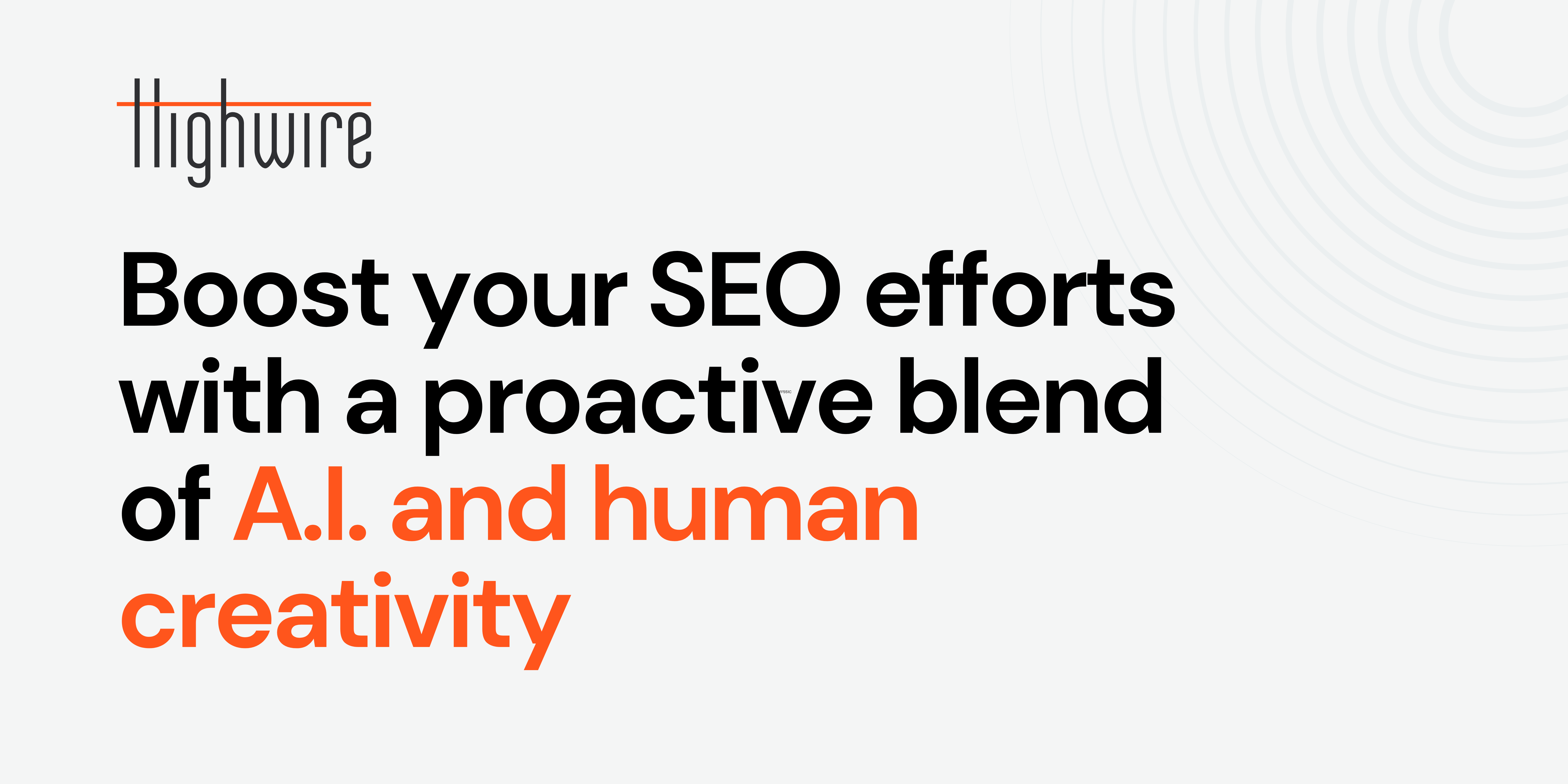
Neil Patel, a renowned digital marketer and entrepreneur, emphasizes that roughly 75% of web surfers rarely browse beyond the first page, highlighting the importance of high search rankings. With many websites vying for these top-tier spots, a key question arises: How can you optimize your content for first-page rankings? This is where recent advancements in artificial intelligence (A.I.) technology come in.
Harnessing A.I. for enhanced content strategy
Staying up to date with SEO is like navigating a labyrinth. You need an unwavering process of analyzing, testing and refining your content to match the latest search engine algorithm updates. With its advanced algorithms and machine learning capabilities, A.I. technology analyzes large amounts of data in real time, allowing it to unearth subtle yet complex insights and patterns — a task that could prove daunting for human analysts.
Consider tools like Clearscope, SurferSEO, and Frase. These platforms use AI to assess top-performing content and offer strategic recommendations for on-page optimization. They cover keyword selection, title tags, meta descriptions, optimal word count, headings, imagery and other aspects. These A.I.-generated insights help you adapt your content strategies, align with evolving search engine algorithms and outpace your competitors to reach the top of the search engine rankings.
Comparing traditional and A.I.-assisted optimization
Recent years have brought an intriguing mix of manual SEO optimization and modern AI-driven methods. While the former banks on human ingenuity and a hands-on approach, the latter streamlines processes through data analytics and automation. The following are some key insights we’ve gathered for comparing traditional vs. AI-aided optimization:
- Human insight vs. data precision: Traditional optimization excels in areas craving a human touch (like fashion or art), where understanding emotional and cultural nuances matters. A.I., while data-centric, sometimes misses these subtleties, but provides a level of data precision that humans cannot match.
- Speed and adaptability: Traditional methods adapt well to changes, but A.I. takes this skill a notch higher by analyzing trends and making real-time adjustments.
- Efficiency and scalability: Manual optimization is labor-intensive and less scalable, especially with large data sets. A.I. effortlessly scales up and optimizes varied data sets.
- Data integrity: A.I.’s effectiveness hinges on its data quality. Skewed data can lead to biased outcomes, but when A.I. is fed high quality, accurate data, it excels at handling massive amounts of data, whereas traditional optimization may struggle.
- Process: Traditional SEO methods follow tried-and-true practices, providing reliable website optimization and content creation strategies. In contrast, implementing A.I. in SEO often includes a steep technical learning curve. It can be challenging if you lack the right resources or expertise.
- Personalization: Traditional and A.I. optimization benefit from personalization — but in different ways. Traditional methods rely on human marketers to tailor content based on their understanding of target audiences, while A.I. uses machine learning algorithms to personalize content at scale.
Integrating A.I. with human creativity forms a hybrid SEO strategy that maximizes each one’s strengths. You can use A.I. to analyze search trends and user behaviors to pinpoint keywords and topics. To get the proper storytelling, though, turn to your team. Human expertise shapes engaging content tailored to the audience.
Challenges, opportunities and recommendations
Using A.I. to improve your SEO practices comes with challenges and opportunities. The trick is to learn where you should use A.I.’s precision and scaling capabilities versus when you should rely on human ingenuity.
Challenges
- Data quality: Biased or inaccurate data leads to flawed recommendations misaligned with goals or audiences.
- Contextual understanding: A.I. struggles with context, emotional nuances and cultural subtleties. This gap affects content involving sensitive topics or nuanced communication.
- Technology dependence: Recognize A.I.’s fallibility and its limits. You don’t want to overlook the importance of human creativity and intuition in your SEO strategy.
- Evolving policies: While it remains unclear exactly what Google’s stance is towards A.I.-written content, indications show that the search engine will penalize websites that rely too heavily on A.I. to produce content.
Opportunities
- Automation and efficiency: A.I. automates keyword generation, content analysis, metadata optimization, report generation tasks and more. Automation frees up your team’s time to focus on creative, high-level tasks requiring a human touch.
- Data-driven insights: A.I.’s analysis of large data sets offers insights into content strategies, user preferences and performance metrics that humans might miss.
- Personalization and adaptability: Imagine being able to personalize content for each user based on their search history, location and preferences. A.I. can make it a reality by analyzing data and tailoring content recommendations to everyone interacting with your website.
Recommendations
- Understand A.I.’s limits: As powerful as A.I. is, it has limitations. Use A.I. for data analysis and insights, but apply human judgment for content creation and strategy.
- Data quality management: Regularly audit and clean data to reduce biases and inaccuracies in A.I. models.
- Continuous learning: Stay updated with A.I. developments and Google’s algorithm changes to refine A.I. use in SEO.
- User experience focus: User experience should be at the forefront of SEO strategies. By analyzing user behavior and preferences, A.I. can help personalize content, improve navigation and optimize for hyper-specific user intent.
- Ethical A.I. practices: To ensure ethical outcomes, address bias in data sources, regularly test for fairness and transparency in A.I. algorithms, safeguard user privacy, and establish accountability mechanisms for A.I.-based mistakes or errors.
Future-proofing SEO with A.I.
Harnessing A.I. in your SEO strategies is quickly becoming integral to obtaining top spots in search engine results. The competition will only increase as more competitors integrate A.I. into their SEO arsenal.
However, keeping up with the latest trends and technology requires significant attention and resources. This is why you should consider partnering with a true expert in the field.
Highwire PR stands apart from traditional strategic communication firms and digital marketing agencies. We are committed to the art of storytelling, believing in creating distinctive and powerful stories that position our clients at the leading edge of their fields.
Reach out today and discover how we can help tell your story.
